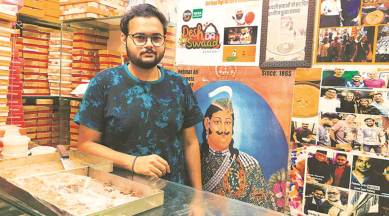Asad Rehman is with the national bureau of The Indian Express and covers politics and policy focusing on religious minorities in India. A journalist for over eight years, Rehman moved to this role after covering Uttar Pradesh for five years for The Indian Express. During his time in Uttar Pradesh, he covered politics, crime, health, and human rights among other issues. He did extensive ground reports and covered the protests against the new citizenship law during which many were killed in the state. During the Covid pandemic, he did extensive ground reporting on the migration of workers from the metropolitan cities to villages in Uttar Pradesh. He has also covered some landmark litigations, including the Babri Masjid-Ram temple case and the ongoing Gyanvapi-Kashi Vishwanath temple dispute. Prior to that, he worked on The Indian Express national desk for three years where he was a copy editor. Rehman studied at La Martiniere, Lucknow and then went on to do a bachelor's degree in History from Ramjas College, Delhi University. He also has a Masters degree from the AJK Mass Communication Research Centre, Jamia Millia Islamia. ... Read More
Families in Food: The delicious halwas of Lucknow’s Rehmat Ali Sweets Corner
In the flower lane of old Lucknow, lies a sweet shop with delectable, mouth-watering halwa to die for.

Mohammad Saif, co-owner of Rehmat Ali Sweets Corner in Chowk area’s narrow but astir “phool waali gully” in old Lucknow, is busy slicing pieces of halwas and packing it into plastic boxes of different sizes. In front of him sit trays full of sunset-yellow halwa, cut into cubes, sprinkled with dry fruits and a delicate sliver of silver. The halwas, dripping with ghee, look rich.
The sweets shop, run by Saif, 23, and brother Mohammad Aamir, 25, was started in 1865 by their great-grandfather Roshan Ali, nine years after the tenth and last nawab of Awadh Wajid Ali Shah lost power and migrated to Calcutta. Ali was a chef for the nawab’s family, but after the dethronement in 1856, Saif says his great-grandfather, too, was without a job.
monthly limit of free stories.
with an Express account.
“It was then that Roshan sahab opened this shop. He was an expert at making sweets, especially, different kinds of halwa,” says Saif, while packing 100g of “habshi halwa”, called so because of its dark brown colour (habshi is a slang for people from Africa). The dark colour comes from cooking it on low heat for six-seven hours. It is made with milk, dried-fruits and wheat sprouts soaked in water. It sells for Rs 800 per kg, today, up from Rs 200 per kg in 2000. As for the name, “Back then, it, perhaps, wasn’t a racist word. No one has raised an issue,” says Saif.
Saif took over the reins of the business after his father Mohd Haroon died in 2014 following a brain haemorrhage. “My father had taken over the shop in the 1960s from my grandfather Rehmat Ali, who sat at the shop since early 1900s, and after whom the shop is now named,” says Saif, whose family originally belongs to old Lucknow. Clad in a blue T-shirt, jeans and big rectangular spectacles, Saif anticipates the next question about the shop’s earlier name and quickly adds, “At that time, shops didn’t have names. It was simply called ‘halwe ki dukaan’ by people.”
The bestseller is the “jauzi halwa”, made with almonds, milk and saffron. Sold more in the winter, the halwa is very warm and helps build immunity. Cellophane sheets cover the trays to protect the halwas from dust and flies.
Another popular variety is the Kohinoor gold, which he claims helps in improving virility in men, “because it is made of gold and silver (sheets),” Saif says, “chilgoza (pine nuts), milk and other dried-fruits.”
Other items include kaali gaajar (black carrot) halwa, zafrani kheer and egg halwa. “The prices vary according to the ingredients. The most expensive is the Kohinoor gold halwa which is sold at Rs 4,000 per kg. The jauzi halwa is sold at Rs 1,000 per kg, while the others are priced between Rs 600 and Rs 800,” says Saif’s elder brother Aamir, who has just walked into the shop to help him close it at 11.30 pm.
“People take back several kilos of halwa to places like Saudi Arabia, Dubai and even London,” says Aamir, who adds that the last celebrity to come to the shop was film director Anubhav Sinha when he was in Lucknow to shoot Mulk (2018). Another celebrity who often stops by for the halwa is actor Ali Fazal (Mirzapur, 3 Idiots, Fukrey).
Aamir, however, explains that running the business comes with riders. “The biggest challenge is price rise. The ingredients get expensive, but people raise their eyebrows when we increase prices of our items. It is difficult to maintain the quality, but our halwas are exactly the same as they were in 1865,” he says, adding, “We will teach how to make the halwas to our children when they are born. We are both bachelors for now, but our family will hopefully continue selling halwas till…,” he pauses, and adds, “I am not sure about how long the business will run, but I hope it runs forever.”
This article appeared in the print edition with the headline ‘Families in Food: Drops of Sun’